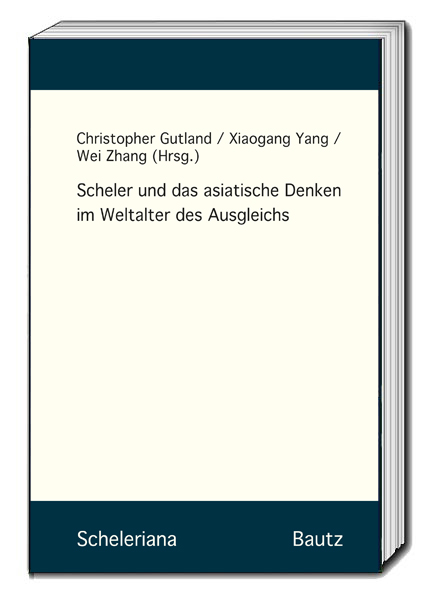
20 Nov Cultivating the Sense of Emotional Identity with the Living Universe
In the second edition (1923) of The Nature of Sympathy, Scheler claims «a long-term reciprocal adjustment [Ausgleich] between the Western ethos and that of Asia, and especially India; so that eventually Asia should learn to cultivate the Western ideals of humanitas and the non-cosmic love of persons in God, while we of the West should cultivate in ourselves the sense of emotional identity with the living universe» (VII, 113-114). My contribution examines the implications of the latter (here bold) part of this claim in the following three respects:
- the sound understanding of emotional identification, and of its relations to emotional infection on one hand, to fellow-feeling on the other. These relations are somewhat problematic, as Scheler (a) insists on the essential difference between emotional infection and all genuine forms of sympathy, (b) defines emotional identification as an extreme form of emotional infection and (c) nevertheless asserts that all genuine sympathetic functions depend on former emotional identification.
- the interpretation of ancient Indian and South Chinese ethics in terms of «emotional identification with the living cosmos». Scheler knew these ethics mainly through Hermann Beckh’s Buddhismus (1916), Friedrich Heiler’s Die buddhistische Versenkung (1918, 2nd ed. 1922), Theodor Lessing’s Europa und Asien (1918), Hermann Oldenberg’s Buddha, sein Leben, seine Lehre, seine Gemeinde (1881, 6th ed. 1914), Richard Pischel’s Leben und Lehre des Buddha (1906, 3rd ed. 1921), as well as Leopold Ziegler’s Gestaltwandel der Götter (1920, 3rd ed. 1922) and Der ewige Buddho [sic] (1922). It is asked (a) whether Scheler, in his time, was right in relating Indian and Daoist ethics, as presented by these German scholars, to his own concept of emotional identification and (b) whether such an understanding is still legitimate in the light of recent research.
- the necessity of the aforementioned adjustment on grounds of the various interactions between all sympathetic functions: «There can be no full development of the higher […] emotional functions in man, where the lower […] ones have not been fully cultivated» (VII, 112). Understanding this dependence requires (a) a careful insight into Scheler’s concept of «foundation» (Fundierung) and (b) a specific assessment of the targets of education and culture.
Les contributions à ce volume ont vu le jour à l’occasion du XIVe congrès international de la Max-Scheler-Gesellschaft, qui eut lieu du 24 au 29 novembre 2017 à l’université Sun-Yat-sen de Guangzhou (Canton), Chine, sous le titre Scheler und das asiatische Denken im Weltalter des Ausgleichs. Au moyen du concept d’Ausgleich (“compensation” ou “équilibrage”) chez Max Scheler, cet ouvrage collectif tente, d’une part, de poursuivre le dialogue interculturel entre l’Est et l’Ouest et, d’autre part, d’attirer l’attention sur le nouvel essor de la recherche phénoménologique en Chine. à partir de ce point de vue sont traités des domaines phénoménaux divers, tels que le rôle des émotions dans l’éthique chrétienne et l’éthique confucéenne, le problème des valeurs et son rapport à la théologie et à la métaphysique de différentes cultures, ainsi que l’humanité à l’ère de la mondialisation et de la technique.
